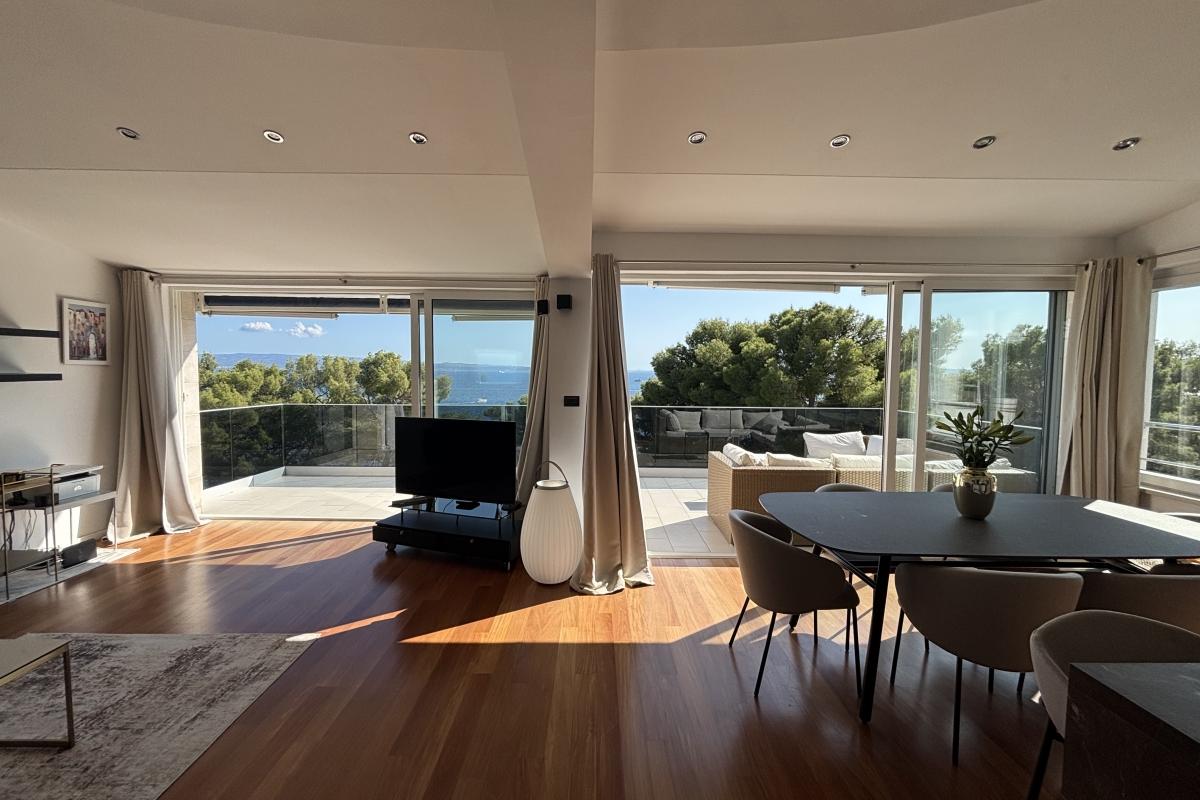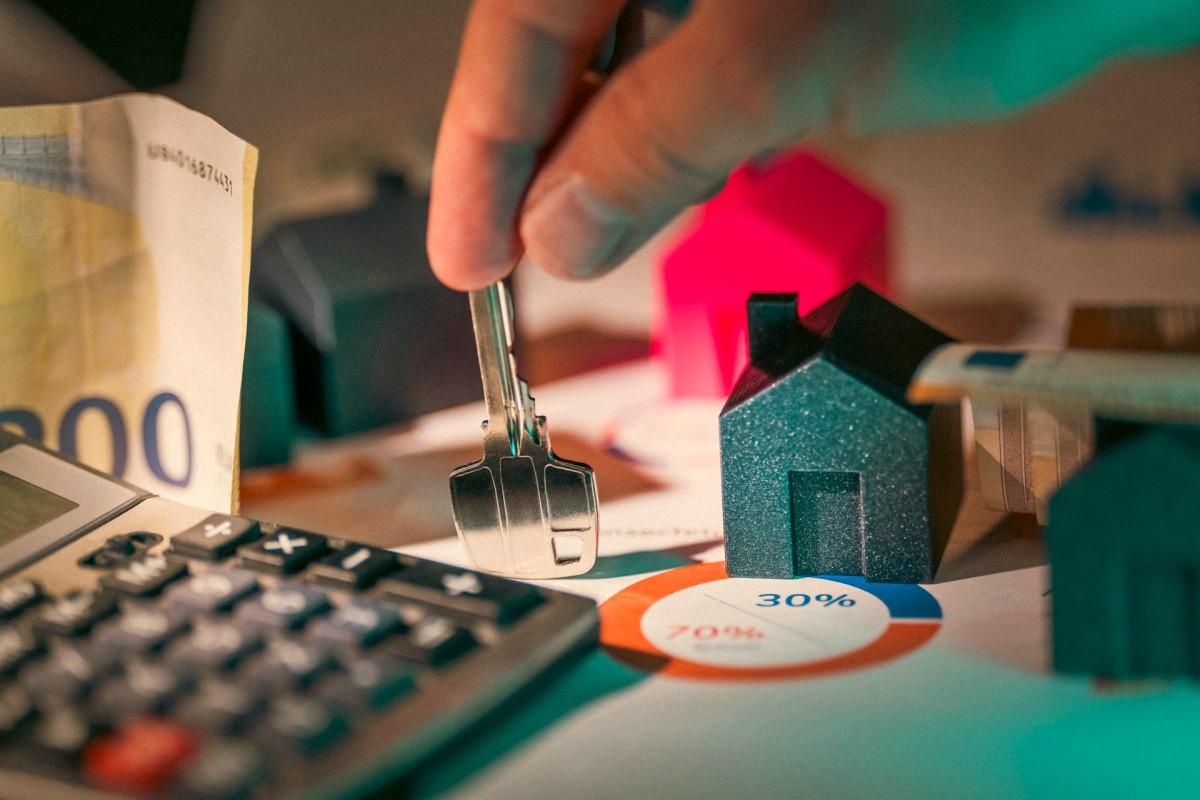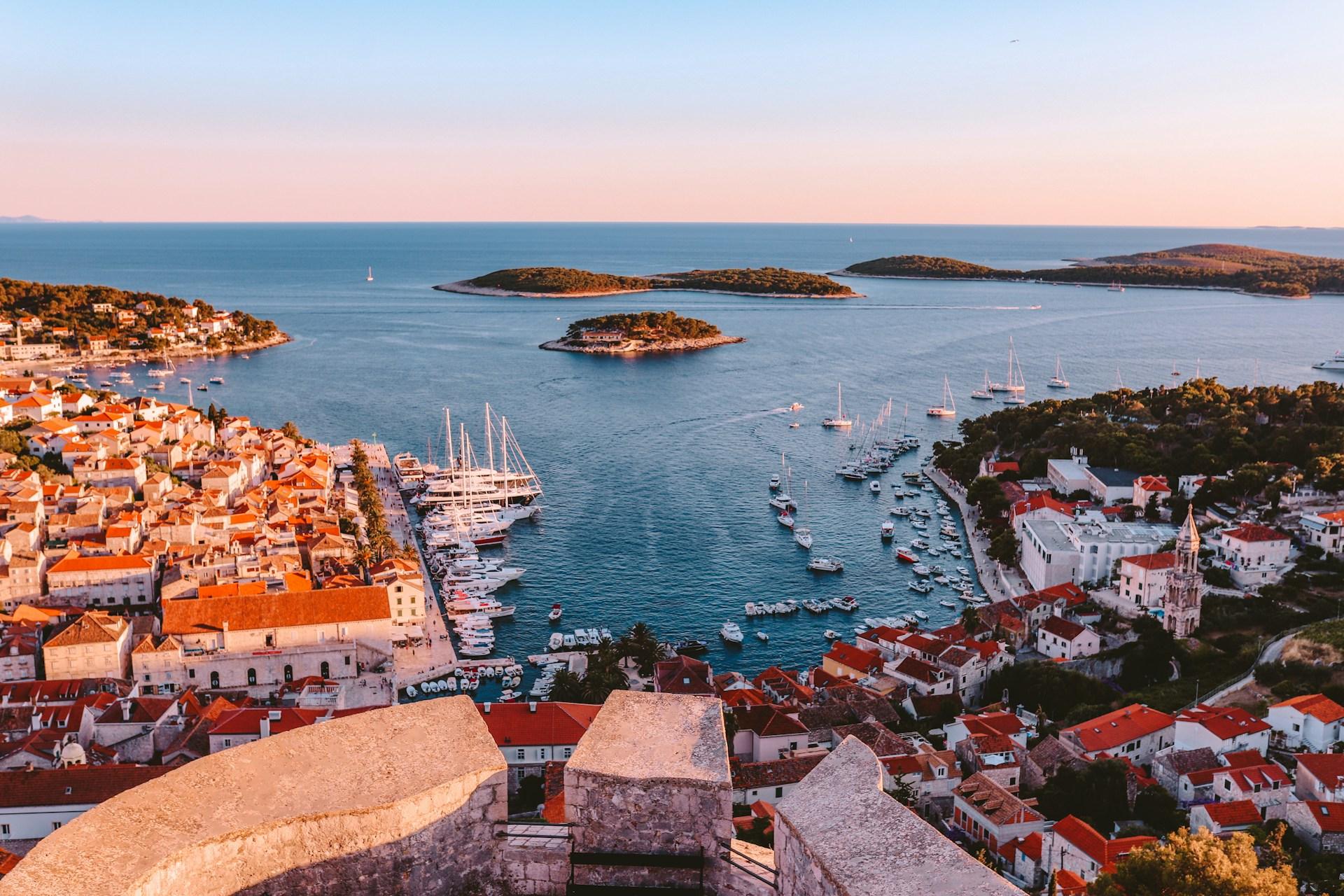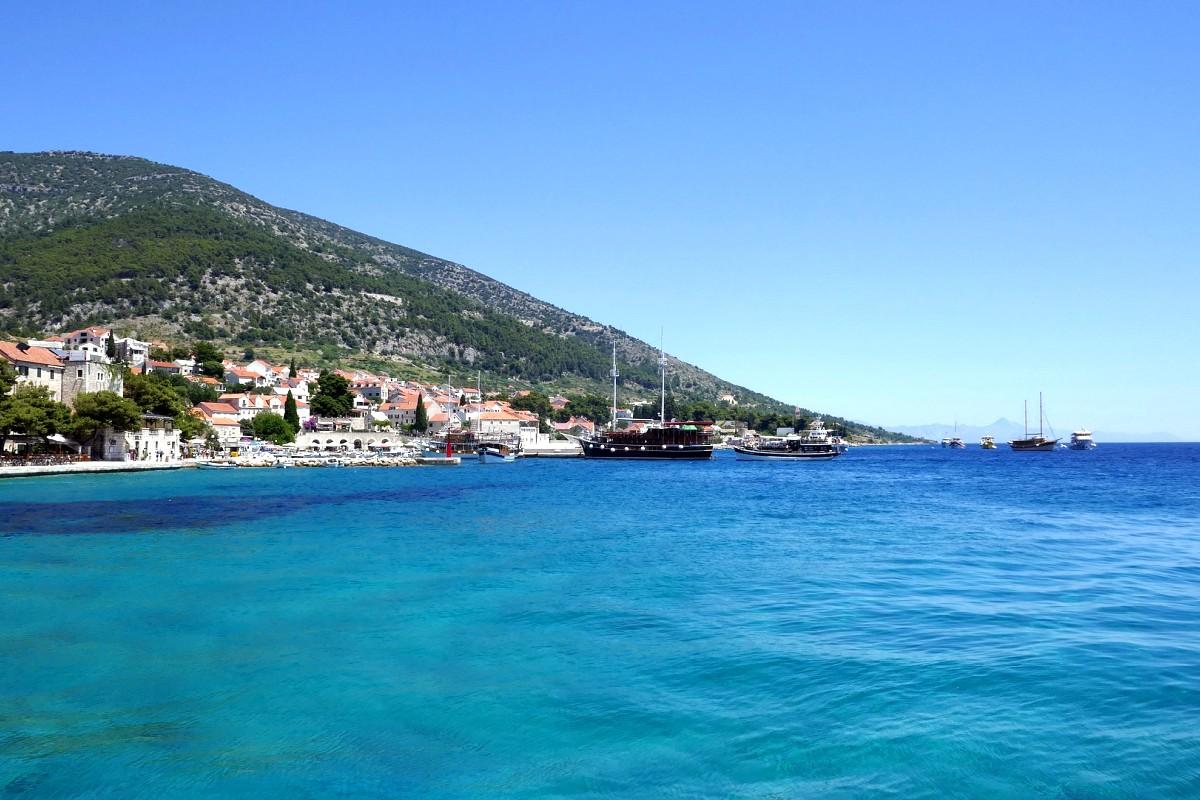Nov 29, 2024
Complete Guide to Buying Property in Split as a Foreign National
Broker Real Estate Agency
Real Estate Agency
Buying property in a foreign country can be an exciting experience, but also a challenging and time-consuming process. This is especially true when purchasing property in Split, the jewel of the Adriatic coast, offering a mix of history, culture, and natural beauty. Due to the specifics of Croatian legislation, local regulations, and a dynamic real estate market, the buying process may require detailed planning and thorough preparation.

Engaging a local real estate agency is recommended for moral and legal support throughout this process.
However, if you wish to navigate the process independently, this guide provides steps and advice to help you understand all phases of purchasing—from market research and seeking legal advice to completing financial transactions and transferring ownership.
Here’s what you need to know to make the buying process as seamless as possible.
Current Trends and Property Prices in Split
Split’s real estate market is marked by high demand and a limited supply, particularly in its historic neighborhoods and coastal areas. Over the past five years, property prices have steadily risen, reflecting the city’s popularity among both investors and lifestyle buyers. For example, properties near Diocletian’s Palace in the Old Town often fetch premium prices due to their cultural significance and location. Understanding these trends is crucial for buyers aiming to make informed decisions in this competitive market.
Different areas of Split offer various styles and types of properties: historic stone houses near Diocletian’s Palace in the city center, modern apartments in newly constructed buildings by the sea, and luxury villas in popular neighborhoods like Meje, Žnjan, and Bačvice. Understanding these differences is crucial for finding a property that best suits your needs and budget.
The first step is researching average prices for the type of property you’re interested in. Keep an eye on online property listings to get a sense of the market, and be mindful of seasonal fluctuations, as prices may rise during the tourist season.

On average, property prices in Split range from €3,500 to €5,000 per square meter, with significant variations. Recently, assessing property value solely based on square meters has become less relevant as the market has grown more sophisticated. Buyers and investors now demand detailed insights into factors contributing to a property’s value beyond size. In the Old Town and sought-after neighborhoods like Meje, prices can exceed €7,000 per square meter.
| Neighborhood | Price Range (€/sqm) | Property Type Examples |
| Old Town | €5,000 – €7,000 | Historic stone houses, apartments |
| Meje | €6,000 – €7,500 | Luxury villas, seafront properties |
| Žnjan | €4,000 – €5,500 | Modern apartments |
Legal Conditions for Foreigners Buying Property in Split
If you’re a foreigner looking to purchase property in Split, paying attention to legal requirements is essential.
Citizens of EU member states enjoy the same property rights as Croatian nationals, making the buying process relatively straightforward. This means EU citizens can purchase properties in Croatia without additional permits, significantly reducing legal complexities. However, if you are a non-EU citizen, you must obtain approval from Croatia’s Ministry of Justice. This approval depends on your country’s reciprocity agreement with Croatia, so it is crucial to confirm your eligibility early in the process.
Non-EU citizens must meet additional conditions. If you’re from a third country, you’ll need approval from Croatia’s Ministry of Justice. This requirement stems from the principle of reciprocity—property purchases are allowed for nationals of countries with reciprocal agreements on property rights with Croatia. If your country has such an agreement, you can obtain Ministry approval and proceed with your purchase.
Every foreigner planning to buy property in Croatia must obtain an OIB (personal identification number). The Tax Administration assigns this number, which is required for all financial transactions in the country, including property ownership transfer. The OIB is central to tax records and is used for all administrative matters.
For foreigners unfamiliar with the Croatian legal system, hiring a lawyer knowledgeable about Croatian laws and specific conditions for buying property in Split is advisable. A competent lawyer can handle document review, obtain an OIB, verify ownership status, and manage land registry entries, significantly easing your journey.

Find the ideal property in Split
Find the best real estate in Split, including luxury houses and modern apartments in attractive locations.
Financing a Property Purchase in Split
Financing a property purchase in Split, Croatia, can be achieved in various ways. The conditions for foreigners are sometimes more challenging than for locals. Whether you’re buying as a private buyer, investor, or planning to rent out the property, there are several key steps and options to consider.

The simplest way to finance a property purchase is through cash payment from your own funds. This option has advantages, as it speeds up the buying process—especially beneficial for attractive properties that sell quickly. Cash purchases also avoid additional costs associated with interest, bank fees, and loan insurance, and provide better negotiating leverage since sellers are often willing to offer lower prices for quick payment.
If you plan to finance your property purchase with a loan, start by consulting Croatian banks that cater to foreign nationals. Be prepared for stricter credit checks and higher interest rates compared to local buyers. For example, most banks require proof of steady income, financial stability, and tax returns from your home country. Alternatively, securing a loan in your home country can sometimes offer better terms, such as lower interest rates or more flexible repayment plans. Consulting a financial advisor will help you identify the most cost-effective solution for your needs. It’s useful to prepare all necessary documents in advance, including proof of income, financial stability, bank statements, tax returns from your home country, and proof of permanent employment.
Some foreign buyers prefer to secure loans in their home country. This can be a good option if loan terms in your home country are more favorable (lower interest rates or better repayment terms) or if Croatian banks are unwilling to provide the desired loan amount.
For any financing option, consulting a banking advisor is recommended to analyze different options and find the best financing strategy for your needs.
The Role of a Real Estate Agent in Split
A real estate agent’s role in Split goes beyond showing properties—their primary function is to act as advisors and facilitators throughout the process. Hiring an experienced agent can be invaluable for foreign buyers.
Local market knowledge enables agents to provide accurate information about the market value of properties, introduce you to different city areas and their specifics, identify quality opportunities, and assist with negotiations, often resulting in a better price.

A qualified real estate agent in Split does more than show you properties—they guide you through the entire buying process. For example, agents assist with obtaining essential documents like the OIB (personal identification number), coordinating with lawyers to ensure all contracts meet Croatian legal standards, and registering the property in your name. Additionally, experienced agents often have insider knowledge about off-market properties, which can help you secure a better deal. When choosing an agent, prioritize transparency and check online reviews to ensure they are reputable. Choosing the right agency is crucial, as their agents collaborate with lawyers and notaries to handle ownership transfers and assist in obtaining an OIB—an essential step in the buying process.
If financing the purchase through a loan, agents have experience working with banks and can streamline that aspect of the process.
After purchasing the property, agents can help set up utility services such as water, electricity, and internet.
If you wish to renovate or adapt the property, agents often know local construction companies, craftsmen, and designers they can recommend. Similarly, if you’re buying property for rental purposes, agents can assist with rental management and logistics for tourists or long-term tenants. This service is particularly helpful for foreign buyers adapting to a new environment.
When selecting an agent, check their reviews. Transparency and clear communication are crucial to avoiding misunderstandings. While hiring an agent involves additional costs in the form of a commission, professional assistance often accelerates the process and reduces risks, saving you time and money in the long run.
Costs and Taxes Associated with Buying Property in Split
When buying property in Split, as in the rest of Croatia, it’s important to consider additional costs and taxes. Foreign buyers are often unclear about their obligations, so understanding what to expect is essential to avoid unpleasant surprises.

The real estate transfer tax is 3% of the purchase price and is payable upon ownership transfer. This applies to all properties not subject to VAT. The tax must be reported and paid within 30 days of signing the purchase agreement. The buyer must submit the tax declaration to the tax office, along with the purchase agreement and other required documents.
In addition to the real estate transfer tax, VAT applies to certain types of property purchases, typically new buildings sold by companies registered as taxpayers. This law applies to newly constructed properties or first-time sales after construction. VAT is included in the property price and paid by the buyer. VAT and the real estate transfer tax are mutually exclusive, meaning both cannot apply to the same property. For new properties, the price will include 25% VAT, and the 3% real estate transfer tax will not apply.
Additional costs may include agent fees, document translation costs, legal services, property appraisal fees, notary fees, bank fees for loan purchases, and ownership transfer fees.
Foreign owners should also consider potential renovation and maintenance costs and rental income taxes if they plan to rent out the property.
Common Pitfalls and How to Avoid Them
Foreigners buying property in Split face specific challenges, such as complex legal procedures and potential ownership uncertainties.
The first pitfall is unverified ownership status – ensure all ownership documents are in order and that the property is free of mortgages or other encumbrances. Check land registry records to confirm the seller’s legal ownership of the property.
The second pitfall involves hidden costs and taxes, making it essential to research all costs associated with the purchase in advance.

Be cautious with properties undergoing legalization – while they may seem like a good deal, the legalization process can be lengthy and costly.
Poorly drafted purchase agreements can lead to legal issues, disputes, or additional future costs. Hire a legal professional to review and prepare the contract, ensuring all terms are clearly defined and aligned with your interests. Ensure the agreement includes all details, such as payment deadlines, ownership status, and property transfer conditions.
Many buyers, especially foreigners, choose to purchase properties based solely on photos or virtual tours, which can lead to unpleasant surprises. Always inspect the property in person before making a final decision. Hire a professional property inspector to identify potential issues like dampness, outdated installations, or renovation needs.
Conclusion
Buying property in Split as a foreign national can be a challenging process, but with the right approach, it offers an exceptional investment opportunity on the Adriatic coast. Success lies in thorough market research, understanding legal requirements, and proper financial planning.
Collaboration with experienced local professionals—such as real estate agencies—can significantly ease the process, minimize risks, and help navigate obstacles. Understanding all costs, tax obligations, and potential pitfalls ensures a smooth process and prevents unforeseen complications.
Regardless of whether you are choosing a property in the historic center, a luxury villa by the sea or buying an apartment in Split, timely preparation and professional advice are the key to making the right decision that will meet your needs and provide long-term value.
Frequently Asked Questions
You can consult the Croatian Ministry of Justice website or contact a legal expert to verify if your country has the necessary agreement in place.
Yes, but it is essential to hire a trusted lawyer to act on your behalf for tasks like document verification and ownership transfer. Remote buying also requires granting power of attorney to your representative.
Found this useful? Share with

Real Estate Agency
Broker real estate agency will help you buy a property at your most favorable and interesting location on Croatian Islands and Coast with ease. We have a large database of apartments, houses, villas and lands for sale in Dalmatia. Search our web for the latest offer of real estate for sale in Croatia.
Broker real estate agency will help you buy a property at your most favorable and interesting location on Croatian Islands and Coast with ease. We have a large database of apartments, houses, villas and lands for sale in Dalmatia. Search our web for the latest offer of real estate for sale in Croatia.
Want to connect with us? We'd love to hear from you! Send us a message, and we'll get back to you shortly.



